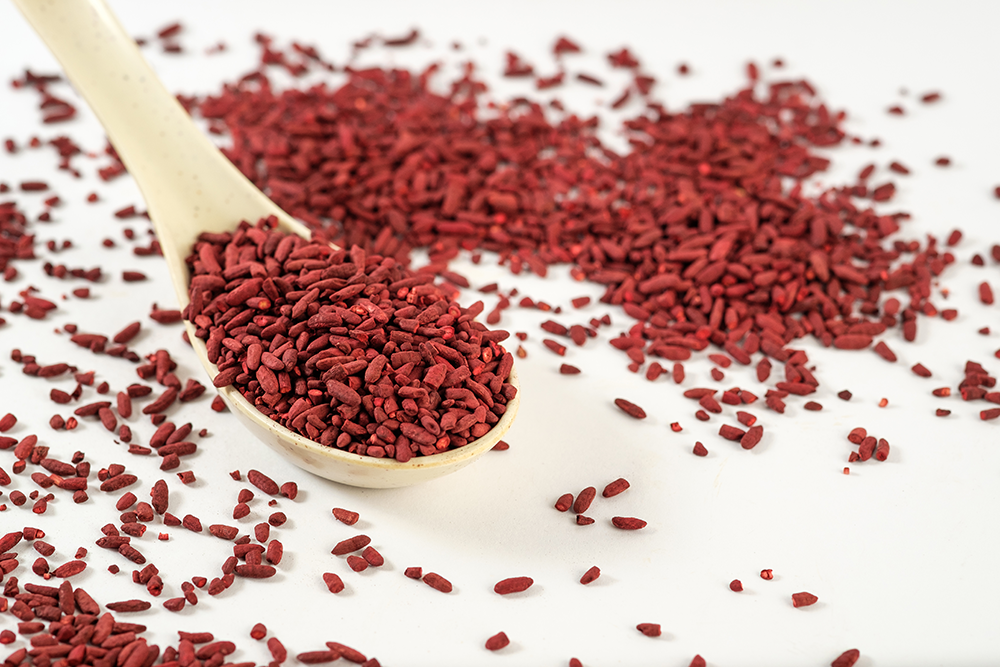The Connection Between Sleep Deprivation, Weight Gain, and Heart Disease

A lack of sleep can directly impact your weight and overall health.
Studies have shown a lack of sleep promotes the expression of a gene linked to obesity. Both sleeping too little (less than 5-6 hours per night) and too much (greater than 9-10 hours per night) are associated with weight gain.
Researchers also propose a lack of sleep can lead to a vicious cycle, meaning poor sleep equals weight gain equals conditions that interfere with sleep which equals continued sleep deprivation.
Appetite
Sleep quality and quantity impact the appetite regulation hormone ghrelin. Ghrelin levels decrease after a meal and increase between meals.
Leptin is another hormone that reduces feelings of hunger. Leptin levels increase during the day and peak at night.
Adipose tissue secretes leptin while the stomach secretes ghrelin.
Sleep deprivation has been shown to increase the ratio of ghrelin to leptin leading to increased appetite and specifically increased carbohydrate cravings. Many studies have shown a lack of sleep leads to increased caloric intake throughout the day.
Breathing Disorders
Continue readingDecrease Hypertension Risk by Increasing Folic Acid
 According to the Centers for Disease Control (CDC), one in every three adults in the United States have hypertension (high blood pressure), but only about 50% of those with hypertension have it under control.
According to the Centers for Disease Control (CDC), one in every three adults in the United States have hypertension (high blood pressure), but only about 50% of those with hypertension have it under control.
A study published April 2012 in the American Journal of Clinical Nutrition found folic acid intake to impact the development of hypertension.
Study participants included 4400 individuals between the ages of 18 – 30 years-old without high blood pressure. Over the following twenty years participant blood pressure was evaluated six times. Participants also completed three dietary history questionnaires. One questionnaire was completed at the start of the study, a second during the study, and the third and final dietary questionnaire at the study conclusion (20 years).
During the 20 year period, 989 individuals developed hypertension. Individuals consuming diets with the highest folate levels were 52% less likely to develop high blood pressure compared to those with the lowest folic acid intake.
Serum folate measurements during the study confirmed the correlation between folic acid and high blood pressure development.
Some food sources of folate include:
Phytosterols, Red Yeast Rice, and Cholesterol

Phytosterols (plant sterols) are similar in structure to cholesterol. Consuming phytosterols as part of your diet can decrease total cholesterol because molecularly they are very similar to cholesterol. As you digest phytosterols they can prevent cholesterol from being absorbed into the bloodstream and therefore the cholesterol that is not absorbed is removed from the system as waste.
Red yeast rice is a fermented product where red yeast has grown on rice. It acts as a natural statin drug in that it forms monacolins (HMG-CoA reductase inhibitors) that lower cholesterol levels. Red yeast rice contains isoflavones, sterols, and monounsaturated fats that also promote lower cholesterol levels.
A study published April 2012 in the Journal of Dietary Supplements studied 18 individuals with high cholesterol. Daily for six weeks the 18 participants received a combination of phytosterols and red yeast rice.
Study results found the supplement combination decreased total cholesterol 19% and LDL Cholesterol 33%. No changes were seen in triglycerides, HDL cholesterol, blood pressure, BMI, or liver function.
For comparison, a 1999 study published in the Journal of the American Medical Association found statins to reduce LDL Cholesterol 28%.
Granted, this wasn’t a large study, but it does show there is likely a way to achieve the results of statins (or even better results) without needing the medication and the potential side effects.
Explore all your options with your doctor.
Keep in mind that even though red yeast rice is naturally occurring, it can deplete coenzyme Q10 levels just like statin drugs. Coenyzme Q10 plays a key role within every cell for energy production. Some coenzyme Q10 deficiency symptoms include aches/pains, fatigue, sore muscles, weakness, and shortness of breath. Be sure to supplement coenzyme Q10 if taking red yeast rice or statin medications.
Access the free e-course How to Lower Cholesterol in 8 Simple Steps at http://lowercholesterolwithlisa.com.
 |
Heart Health Made Easy: Master the Basics to Lower Blood Pressure and Cholesterol for a Longer, Healthier Life
|
Spices – 4 Natural Health Remedies in Your Kitchen
 You don’t necessarily need mega doses of specific vitamins and minerals in pill form to treat an illness. Fruits and vegetables are one natural source high in both vitamins and minerals.
You don’t necessarily need mega doses of specific vitamins and minerals in pill form to treat an illness. Fruits and vegetables are one natural source high in both vitamins and minerals.
Today let’s discuss four spices linked to health benefits and why.
Cloves
Cloves are a natural way to reduce blood sugar, triglycerides, LDL cholesterol, and total cholesterol levels. This was clearly supported by a published 2006 placebo-controlled study that divided diabetics into four groups. Group 1 received a placebo supplement, group 3 received 1 gram of cloves daily, group 3 received 2 grams of cloves daily, and group 4 received 3 grams of cloves daily. All groups continued their daily supplement for 30 days. All participants receiving some level of cloves experienced improvements.
Cloves are rich in phenolic compounds that interfere with the artery clogging oxidation of LDL cholesterol.
Curry (Turmeric)
Curry is a powerful antioxidant and works to eliminate free radicals and inflammation. This means curry can be an effective tool for treating arthritis, heart disease, and cancer.
Is Social Media Causing You to Gain Weight?
 The new social media site Pinterest is coming under scrutiny for wrecking diets and causing increased calorie intake. Why? All those delicious pictures of sweet desserts!
The new social media site Pinterest is coming under scrutiny for wrecking diets and causing increased calorie intake. Why? All those delicious pictures of sweet desserts!
As the third most popular social media platform, Pinterest now has more than 20 million users with a majority being women.
When users “pin” their favorite recipes the recipes tend to lean towards the unhealthy high calorie choices.
Red Velvet Cake
Chicken Taco Chili
Oreo Layer Dessert
Strawberries and Cream Dessert Squares
Gnocchi, Sweet Corn, & Arugula in Cream Sauce
Pumpkin Spice Donuts
Tin Roof Ice Cream Cake
And the list goes on. . .
All sounds delicious, right? On the negative side, the recipes tend to be high in added sugars, saturated fat, and calories.
Continue reading
How to Select a Bar that is Heart Healthy
 It seems like we a constantly on the go, which makes quick and easy snacks a regular part of our daily routine. This is why bars are so popular; however, I don’t want you to assume a granola bar is automatically a heart healthy choice. Let’s cover what you need to look at when selecting a bar in a little more detail.
It seems like we a constantly on the go, which makes quick and easy snacks a regular part of our daily routine. This is why bars are so popular; however, I don’t want you to assume a granola bar is automatically a heart healthy choice. Let’s cover what you need to look at when selecting a bar in a little more detail.
Carbohydrates
The high carb bars were originally intended for endurance athletes that require high energy food (i.e. high calorie food) to support there high levels of activity. This is not what you need to make it through everyday activities. Look for a bar that provides 40% or less of it’s calories from carbohydrates.
Protein
Find a bar that providers between 15 to 20 grams of protein per bar. Soy is frequently used as a protein source in bars. Due to the potential negative side effects of a diet high in soy, I encourage you to look for a bar that does not include soy. Instead, look for bars that utilize whey as the primary protein source.
Continue reading



